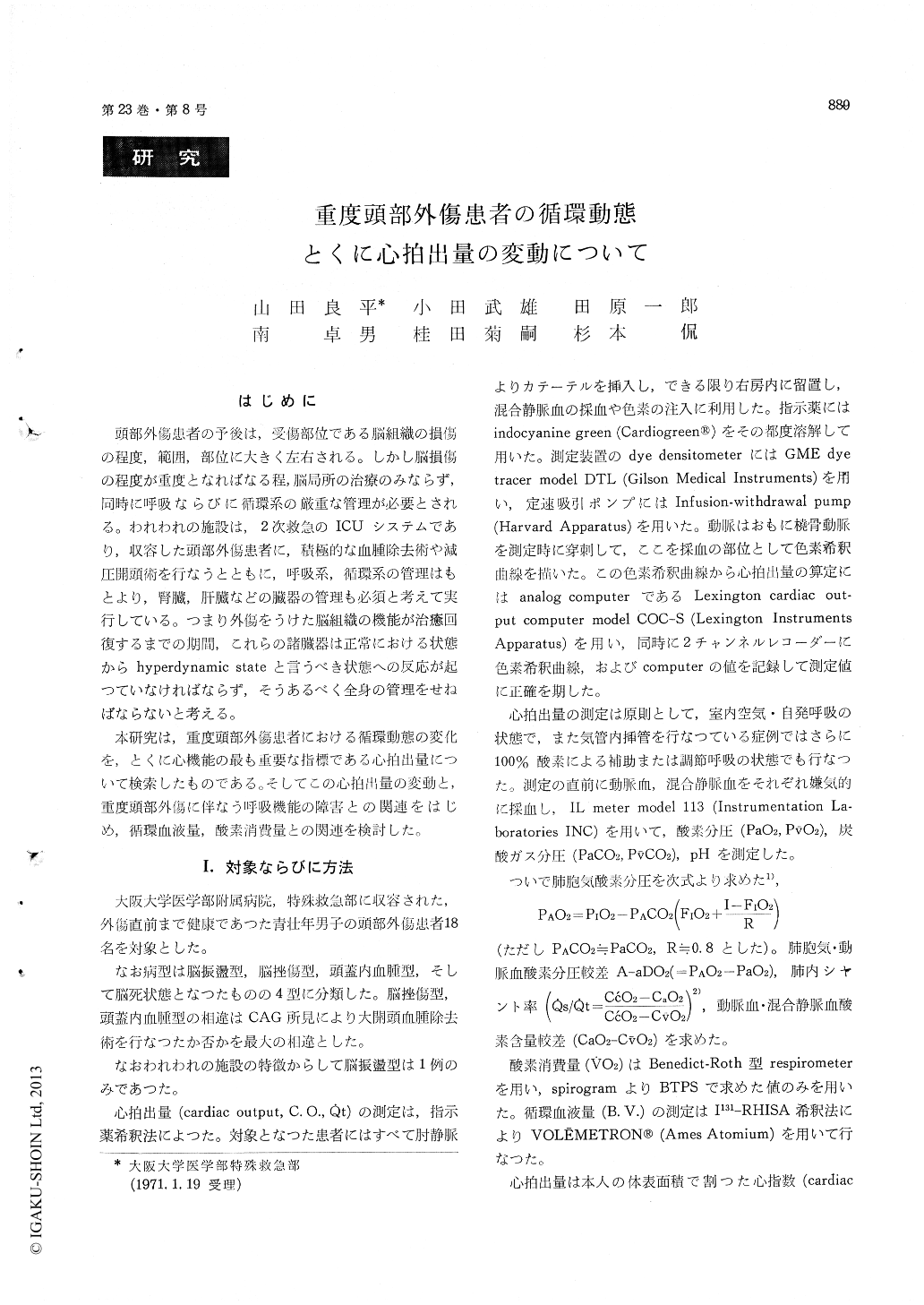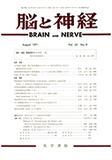Japanese
English
- 有料閲覧
- Abstract 文献概要
- 1ページ目 Look Inside
はじめに
頭部外傷患者の予後は,受傷部位である脳組織の損傷の程度,範囲,部位に大きく左右される。しかし脳損傷の程度が重度となればなる程,脳局所の治療のみならず,同時に呼吸ならびに循環系の厳重な管理が必要とされる。われわれの施設は,2次救急のICUシステムであり,収容した頭部外傷患者に,積極的な血腫除去術や減圧開頭術を行なうとともに,呼吸系,循環系の管理はもとより,腎臓,肝臓などの臓器の管理も必須と考えて実行している。つまり外傷をうけた脳組織の機能が治癒回復するまでの期間,これらの諸臓器は正常における状態からhyperdynamic stateと言うべき状態への反応が起つていなければならず,そうあるべく全身の管理をせねばならないと考える。
本研究は,重度頭部外傷患者における循環動態の変化を,とくに心機能の最も重要な指標である心拍出量について検索したものである。そしてこの心拍出量の変動と,重度頭部外傷に伴なう呼吸機能の障害との関連をはじめ,循環血液量,酸素消費量との関連を検討した。
Significant changes in the cardiac output were observed in patients with head injury.
In patients who took a favorable turn, the cardiac output increased from the very day of injury through the 4th day or so, and gradually decreased thereafter to fall in the normal range.
Correlation of the cardiac index with blood volume, oxygen consumption, and physiologic in-trapulmonary shunt was positive, while that with the difference of oxygen content in the arterial blood and mixed venous blood was in inverse proportion.
On the other hand, no correlation was noted with PaO2 and alveolar-arterial difference of the oxygen tension.

Copyright © 1971, Igaku-Shoin Ltd. All rights reserved.


